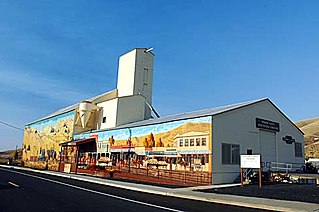
Heppner is a city in, and the county seat of, Morrow County, Oregon, United States. As of 2010, the population was 1,291. Heppner is part of the Pendleton-Hermiston Micropolitan Area. Heppner is named after Henry Heppner, a prominent Jewish-American businessman.

Umatilla is a city in Umatilla County, Oregon, United States. The population in 2010 was 6,906, but the city's population includes approximately 2,000 inmates incarcerated at Two Rivers Correctional Institution.

The mayor of Portland, Oregon is the official head of the city of Portland, Oregon, United States. The officeholder is elected for a four-year term and has no term limits. By law, all elections in Portland are nonpartisan. The current mayor is Ted Wheeler, who has served since 2017, and was first elected in the 2016 election.

Norma Jean Paulus was an American lawyer and politician in the state of Oregon. A native of Nebraska, she was raised in Eastern Oregon before becoming a lawyer. A Republican, she first held political office as a representative in the Oregon House of Representatives, and then became the first woman elected to statewide public office in Oregon when she became Oregon Secretary of State in 1977. Paulus later served as Oregon Superintendent of Public Instruction for nine years. She made unsuccessful bids to become Governor of Oregon and United States Senator. Prior to her death on February 28, 2019, Paulus lived in Portland, where she was involved with several non-profit groups and sponsored a ballot measure to create open primaries in Oregon's statewide elections.

The government of Portland, Oregon is based on a city commission government system. Elected officials include the mayor, commissioners, and a city auditor. The mayor and commissioners are responsible for legislative policy and oversee the various bureaus that oversee the day-to-day operation of the city. Portland began using a commission form of government in 1913 following a public vote on May 3 of that year. Each elected official serves a four-year term, without term limits. Each city council member is elected at-large.

On Tuesday, November 6, 2012, an election was held in Portland, Oregon, to elect the mayor. Charlie Hales was elected, defeating Jefferson Smith. Incumbent mayor Sam Adams did not seek a second term.

Charles Andrew Hales is a former American politician who served as the 52nd mayor of Portland, Oregon, from 2013 to 2017. He previously served on the Portland City Council from 1993 to 2002.
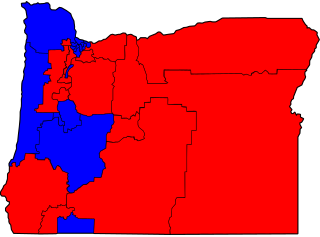
The 2012 elections for the Oregon Legislative Assembly determined the composition of both houses for the 77th Oregon Legislative Assembly. The Republican and Democratic primary elections were on May 15, 2012, and the general election was on November 6, 2012. Sixteen of the Oregon State Senate's 30 seats were up for election, as were all 60 seats of the Oregon House of Representatives.
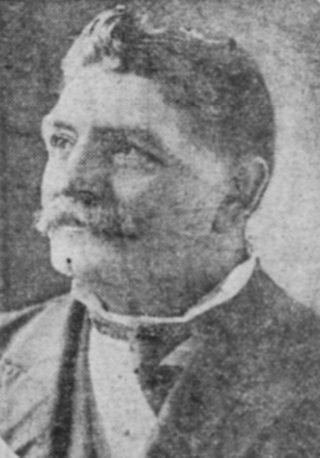
William A. Storey was the mayor of Portland, Oregon, United States, from 1899 to 1900. He later served as Multnomah County Sheriff, from 1902 to 1904.

On Tuesday, May 17, 2016, an election was held in Portland, Oregon, to elect the mayor. Ted Wheeler was elected after garnering 54% of the primary vote. Incumbent mayor Charlie Hales did not seek a second term.

The 1902 Oregon gubernatorial election took place on June 2, 1902 to elect the governor of the U.S. state of Oregon. The election matched Republican W. J. Furnish against Democrat George Earle Chamberlain.
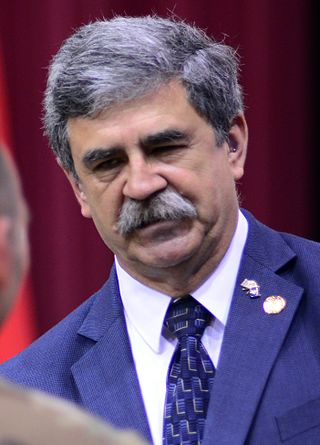
Rick Lewis is an American politician and former law enforcement officer serving as a member of the Oregon House of Representatives. He represents the 18th district, which covers southern Clackamas and northeastern Marion counties.

Clara Cynthia Munson was an American politician who served as mayor of Warrenton, Oregon, and was the first woman elected mayor in Oregon during the 20th century. Her term lasted one year (1913–14) before she was succeeded by George Schmitz.

On May 19, 2020 and November 3, 2020, elections were held in Portland, Oregon, to elect the mayor.

A general election was held in the U.S. state of Oregon on November 3, 2020. Primary elections were held on May 19, 2020.

The Portland city auditor is one of the six citywide elected positions in Portland, Oregon. The auditor is the only elected official functionally independent of City Council and accountable only to the public. The auditor exists "to promote open and accountable government by providing independent and impartial reviews, access to public information, and services for City government and the public." The current auditor, since January 2023, is Simone Rede.
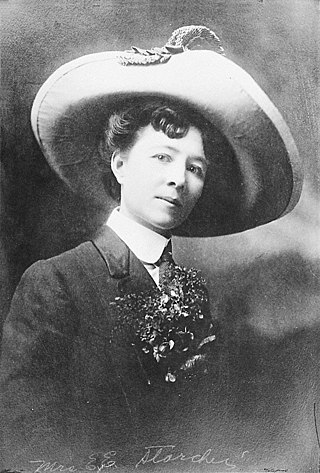
Laura Stockton Starcher was the first female mayor in Umatilla elected through the Petticoat Revolution in 1916. She was the wife of incumbent mayor EE Starcher, and was elected by a vote of 26–8. Her husband only discovered she was his opponent on the afternoon of election day.
Stella Paulu was an American politician, councilwoman, and second female mayor of Umatilla elected through the Petticoat Revolution in 1916. In 1918, she succeeded Laura Stockton Starcher as mayor. The group made major improvements in public services and infrastructure of the city.

Roy Wallace Ritner was an American politician and farmer from Pendleton, Oregon. Beginning in 1915, he served two two-year terms in the Oregon House of Representatives followed by two four-year terms in the Oregon State Senate. Ritner was a conservative Republican who represented Umatilla County in both of Oregon's legislative chambers. He was President of the Oregon State Senate from 1921 through 1922. While he was senate president in 1922, he served as acting governor for 35 days while the elected governor was out of the state. Ritner was also a successful wheat farmer and served as the business manager for the Pendleton Round-Up for many years.

















